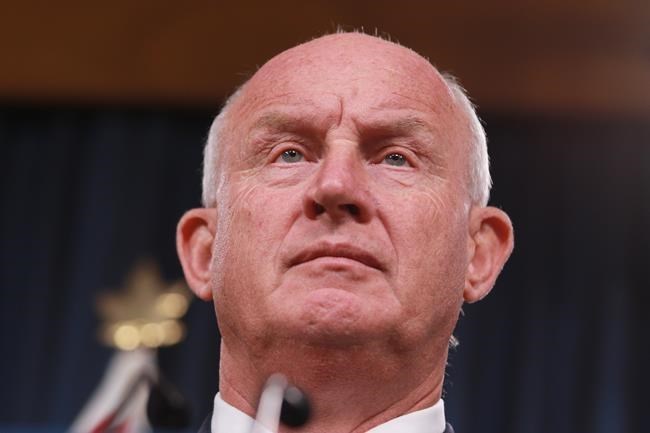VANCOUVER — The British Columbia government is updating sexual assault policing standards to ensure more effective investigations and improved outcomes for survivors.
The province announced Monday that it's committing to providing stable annual funding to 68 sexual assault programs across B.C., while it sets new standards for police to collaborate with victims services workers during investigations.
Public Safety Minister and Solicitor General Mike Farnworth said survivors deserve to be treated fairly after going through trauma and shielded from further harm, and the new standards and programs will "empower" those people.
"The standards promote police co-ordination with health services and community supports," Farnworth said. "They require supervisory oversight to make sure investigations are responsive and impartial, and a review of closed cases to improve future investigations or informed training moving forward."
The province said the funding for the new programs kicks in this month, while new policing standards coupling investigators with victims services workers will begin next year, applying to all B.C. police officers.
Angela Marie MacDougall, executive director of Battered Women’s Support Services, said in an interview that the new funding is welcome, but questioned whether the new standards touted by the province will have any effect on policing culture.
In a statement released after the announcement, MacDougall's organization said only six per cent of sexual assaults get reported to police "due to fear and mistrust of the criminal legal system."
"Given the widely documented, systemic issues of racism, misogyny, homophobia, and unaccountability in the culture of policing, particularly the RCMP, will these standards alone be enough?" the statement said.
MacDougall said that one of the biggest issues for sexual assault survivors is dealing with front-line patrol officers who are essentially the "gatekeepers" who decide whether to forward for further investigation.
She said the long-standing problem for sexual assault survivors is having their claims dismissed as being "unfounded" and not properly investigated by police.
MacDougall said many police forces have been shown to have "serious problems within their organizational culture and how they respond to victims of sexual assault."
She said the Kelowna and Prince George detachments of the RCMP have come under fire for their handling of sexual assault investigations, and her organization hears consistently from survivors that they don't believe police will adequately investigate their cases.
The RCMP began a review of its sexual assault complaints after a Globe and Mail investigation in 2017 reported police classify an average one in five sexual assaults as unfounded, and since then it has reopened hundreds of files and laid dozens of charges.
In Kelowna that year, the detachment received 70 reports of sexual assaults, but dismissed more than 40 per cent of them as "unfounded," Statistics Canada data shows.
Farnworth said the new B.C. policing standards include a review of closed cases, and will involve "supervisory oversight" of investigations to make sure officers are impartial and "trauma-informed."
The B.C. government says it now kicks in $54 million a year for crime victim support services and programs, more than 470 of which deal with violence against women and sexual assault survivors.
MacDougall said police forces have a year to implement the province's new standards, and whether they end up following them is an open question.
"There already were expectations that police would follow proper investigative practices around sexual assault, but they didn't, so now they're being told to," she said. "The question is, will they follow through?"
This report by The Canadian Press was first published July 24, 2023.
The Canadian Press



